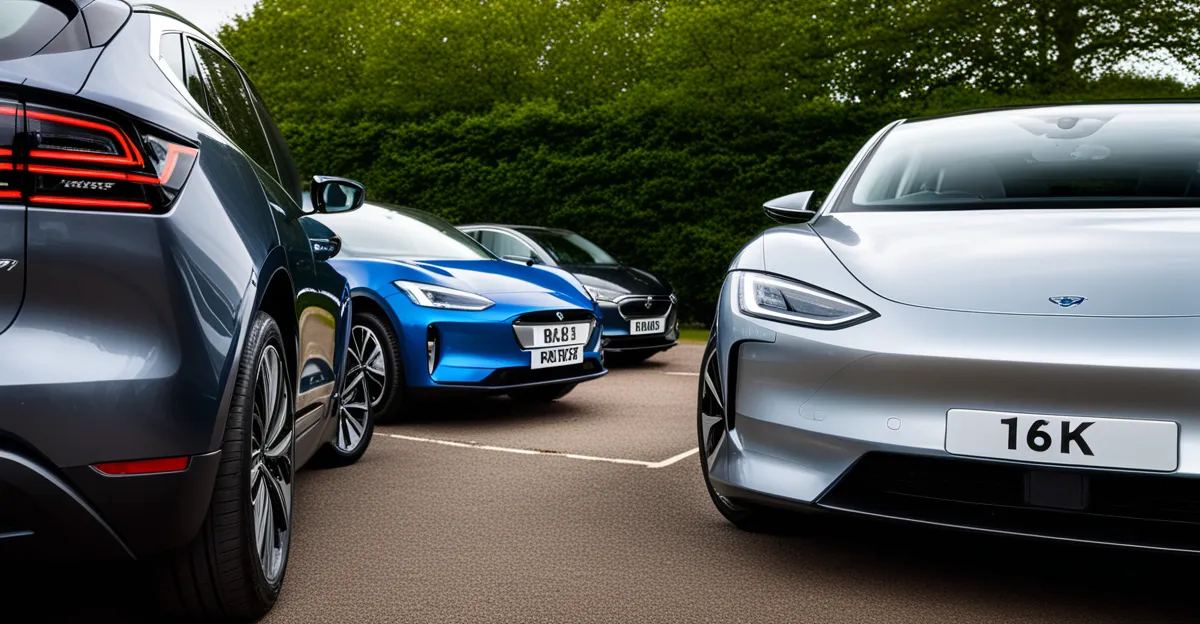UK car manufacturers’ shift towards electrification
The landscape of UK car manufacturers is rapidly evolving as they embrace comprehensive electrification strategies to meet the rising demand for cleaner mobility. Major UK automotive companies have committed to transitioning their entire fleets from internal combustion engines to electric vehicles (EVs) within defined timelines, reflecting a strategic prioritization of sustainability and innovation.
Key players in the sector have announced ambitious electric vehicle transition plans. For example, several manufacturers aim to offer predominantly or exclusively electric lineups by the early 2030s. This shift aligns closely with national and international targets for reducing vehicle emissions, underscoring the industry’s dedication to environmental compliance and technological leadership.
In parallel : What role does technology play in enhancing UK automotive safety standards?
Additionally, industry statistics reveal a significant uptrend in UK-based EV production and sales. The domestic market has seen year-over-year growth in electric vehicle registrations, signaling increasing consumer confidence and infrastructure support. These statistics not only highlight the effectiveness of current electrification strategies but also point toward the UK’s growing role as a center for EV innovation and manufacturing.
In summary, UK car manufacturers are systematically advancing their shift toward electrification through strategic planning, clear timelines for electric adoption, and measurable increases in EV production and sales, positioning themselves at the forefront of the electric vehicle revolution.
Also to read : The Future of Electric Vehicles: Are Sustainable Cars Truly Affordable?
Launch of new electric vehicle models
The UK car manufacturers have ramped up the release of new EV models UK to capitalize on the accelerating demand for electric mobility. In 2024, British electric cars from established brands and emerging startups showcase substantial advancement in both performance and design. Key launches feature longer ranges, faster charging capabilities, and innovative smart technology integrations, highlighting the sector’s commitment to consumer needs and sustainability.
These new EV models UK often incorporate cutting-edge battery technology, enabling driving ranges that appeal to both urban and long-distance drivers. Manufacturers are also focusing on aesthetic appeal and interior comfort to attract a wider market share. For example, enhanced infotainment systems and driver-assistance features position these models competitively alongside international offerings.
Consumer response has been notably positive towards British electric cars launched recently, reflecting growing confidence in the UK’s electric vehicle transition. Market feedback consistently praises improved range and reliability, while buyers value the expanding variety that accommodates diverse lifestyles. This enthusiasm further fuels manufacturers’ ambitions to accelerate their rollout of new electric vehicle lines, reinforcing the UK’s standing as an innovation hub in the EV sector.
Investment in EV technology and infrastructure
UK car manufacturers are significantly increasing their investments in EV technology UK to support the ongoing electric vehicle transition and enhance competitiveness. These investments focus heavily on advanced battery development, including improvements in energy density, charging speed, and battery lifespan. Leading manufacturers are also innovating in electric drivetrain systems to improve efficiency and driving performance, crucial for making British electric cars more appealing in both domestic and international markets.
In parallel, there is a robust expansion of charging infrastructure across the UK. This includes widespread deployment of rapid and ultra-rapid charging stations strategically placed to reduce range anxiety, thereby supporting consumer confidence in purchasing electric vehicles. Industry reports indicate a steady rise in the number of public chargers, with government and private sector funding accelerating the rollout. The expansion ensures that new EV models UK coming to market have accessible and reliable charging options to match their enhanced capabilities.
Research centres and innovation hubs play a vital role in driving these advancements. Collaborations between manufacturers and academic institutions fuel cutting-edge discoveries in materials science and power electronics, further reinforcing the UK’s leadership in EV technology UK. Together, these efforts establish a strong foundation for sustainable growth in the sector and support the broader goals of the UK car manufacturers’ electrification strategies.
Strategic partnerships and collaborations
Strategic EV partnerships UK are pivotal to accelerating the electric vehicle transition pursued by UK car manufacturers. Collaborations between automotive companies and technology firms focus on integrating advanced software, connectivity, and autonomous driving features into new electric models. These alliances leverage each partner’s strengths, combining automotive expertise with cutting-edge tech innovation to deliver enhanced vehicle performance and user experience.
Joint ventures involving UK automakers and energy providers play a crucial role in expanding the charging infrastructure necessary for widespread EV adoption. These collaborations deploy and manage rapid and ultra-rapid charging stations nationwide, addressing range anxiety and supporting the practical use of new EV models. By partnering with infrastructure specialists, manufacturers can ensure their electrification strategies remain viable and consumer-friendly.
Moreover, many such partnerships benefit from government or industry programmes that offer financial incentives, technical support, and regulatory guidance. This close coordination with policy frameworks enables companies to align their electric vehicle transition timelines with national zero-emission targets. Together, these collaborative efforts strengthen the UK’s EV ecosystem, driving innovation while facilitating a smooth transition to sustainable mobility.
Influence of government incentives and regulations
Government EV incentives UK play a crucial role in accelerating the electric vehicle transition among UK car manufacturers. Financial subsidies and tax reliefs reduce production costs and retail prices, making British electric cars more accessible and competitive. For example, grants for battery development and manufacturing support enable automakers to invest heavily in advanced electrification strategies. Additionally, consumer-focused incentives such as reduced vehicle tax and exemptions from congestion charges directly boost demand for new EV models UK.
Zero emission mandates imposed by UK regulations set clear deadlines for phasing out internal combustion engines. These mandates compel manufacturers to align their product plans with legally binding targets, ensuring that electrification strategies remain on track. Strict emission compliance is increasingly integrated into vehicle certification processes, influencing design and production priorities. This regulatory environment drives innovation in EV technology UK, as companies must deliver vehicles meeting evolving standards without compromising performance or cost.
Post-Brexit policies have introduced adjustments in regulatory frameworks, impacting the automotive sector’s operational landscape. While some trade barriers and certification changes present challenges, government collaboration programmes help manufacturers navigate these shifts. Industry reports highlight that ongoing dialogue between policymakers and carmakers supports alignment on zero emission mandates and streamlines the uptake of EV technology UK. In summary, government incentives combined with evolving regulations enforce a structured yet supportive framework that enhances the UK car manufacturers’ commitment to electrification strategies and the broader electric vehicle transition.
Current market trends and future outlook
Understanding EV market trends UK is essential for grasping the trajectory of the electric vehicle transition. Consumer demand has shown consistent growth, driven by increased environmental awareness and improved technology. Recent statistics indicate a steady rise in electric vehicle registrations, reflecting positive market acceptance. However, demand fluctuations also occur due to pricing, charging infrastructure availability, and government policy changes, highlighting the dynamic nature of the sector.
Industry projections foresee substantial investments planned by UK car manufacturers to expand EV production capacity and diversify offerings. This commitment underscores confidence in sustained demand growth and technological advancement. Analysts predict that as more affordable and high-performance new EV models UK reach consumers, market penetration will accelerate further, reinforcing the broader electrification strategies adopted across the industry.
Experts emphasize emerging opportunities within battery innovation, software integration, and smart charging solutions as pivotal for future success. Challenges remain in areas such as raw material sourcing and scaling infrastructure, but ongoing EV market trends UK suggest a transformative period ahead. Overall, the outlook for the UK’s electric vehicle landscape is positive, driven by evolving consumer preferences and robust industry commitment.







